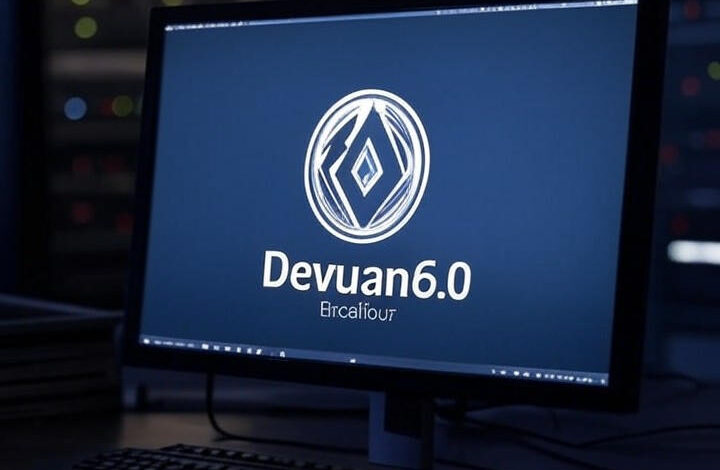Devuan 6.0 Excalibur Launches: A Systemd-Free Revolution Today

UPDATE: The open-source community has just witnessed a major breakthrough with the release of Devuan 6.0, codenamed “Excalibur,” announced on November 3, 2025. This new version offers a robust, systemd-free alternative to Debian 13, catering to developers and system administrators who prioritize flexibility in init systems.
Devuan 6.0’s launch is crucial for those who seek a stable operating system without the controversial systemd integration that has sparked division within the Linux community. By incorporating the Linux 6.12 LTS kernel, this release emphasizes reliability, making it ideal for enterprise environments that demand stability over the latest features.
The announcement, covered by Phoronix, highlights Devuan’s commitment to maintaining its core philosophy: providing users with choices like SysVinit, OpenRC, and Runit while stripping out systemd dependencies. This allows users to leverage Debian’s extensive package repository without the overhead typically associated with systemd’s architecture.
Devuan’s journey began in 2014, when a group of seasoned Debian developers forked the project due to concerns about systemd’s complexity. Since then, Devuan has consistently aligned its releases with Debian’s stable branches, with Devuan 5.0 based on Debian 12 “Bookworm” launched in 2023. The new 6.0 version introduces a mandatory /usr merge, a significant filesystem change that aligns with modern Debian practices but necessitates careful migration for existing users.
For tech enthusiasts, the implications of this release are profound. Devuan’s lightweight footprint and customizable boot processes can lead to faster boot times—an attractive feature for embedded systems engineers and those managing containerized workloads. Additionally, the integration of PipeWire for enhanced audio handling signals a commitment to multimedia capabilities, making it a viable option for desktop users who avoid systemd’s resource demands.
Compatibility remains a core strength of Devuan, supporting various architectures including x86_64, arm64, and even legacy i386 hardware. This broadens its appeal in sectors like IoT and server farms, where the robustness of Debian is prized but systemd’s integration poses challenges. However, adoption is not without its hurdles; some upstream packages still rely on systemd, necessitating ongoing community efforts to provide patches and alternatives.
Amidst the backdrop of the broader Linux ecosystem, Devuan 6.0’s release arrives as the Linux 6.18 kernel’s release candidates are in the pipeline. While mainstream distributions continue to innovate around systemd, Devuan stands as a testament to the importance of diversity in the open-source landscape. For enterprises wary of vendor lock-in or those seeking minimalist setups, this release underscores the enduring relevance of choice in open-source software.
Looking forward, Devuan’s maintainers have indicated a continued alignment with Debian’s release cycle, potentially incorporating features from upcoming kernels like 6.18 for enhanced hardware support. The project’s focus on “init freedom,” a term established in its inaugural 1.0 release in 2017, positions it as a niche yet vital player in the Linux ecosystem.
In an era where cloud-native computing is on the rise, alternatives like Devuan could gain traction in specialized niches, particularly in security-focused deployments where minimizing attack surfaces is critical. Ultimately, the launch of Devuan 6.0 is not merely a software update—it is a powerful statement on software philosophy. By forking from Debian 13 without sacrificing stability, it paves the way for users prioritizing control over convenience, ensuring that the Linux community remains vibrant and adaptable to diverse needs.
As the world of open-source software continues to evolve, Devuan 6.0 stands as a significant milestone—one that users and developers alike will be watching closely.





